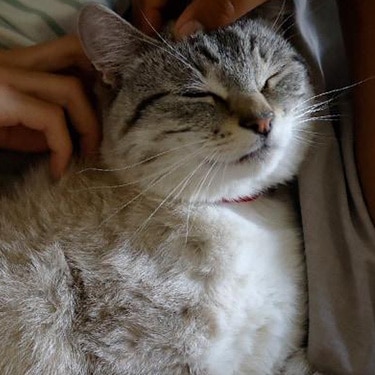
-
Find the right food for your petTake this quiz to see which food may be the best for your furry friend.Find the right food for your petTake this quiz to see which food may be the best for your furry friend.Featured products
 Perfect Digestion Large Breed Puppy Food
Perfect Digestion Large Breed Puppy FoodPrecisely balanced nutrition with Hill's ActivBiome+ prebiotic blend actively contributes to supporting digestive health and overall well-being to help your pet feel their best
Shop Now Small & Mini Mature Adult 7+ Dog Food
Small & Mini Mature Adult 7+ Dog FoodHill's Science Plan Small & Mini Breed Mature Adult Dog Food with Chicken is a complete pet food, specially formulated with ActivBiome+ Multi-Benefit Technology.
Tailored nutrition to support graceful ageing in small dogs. Specially made with a synergistic blend of nutrients for energy & vigor.Shop Now Perfect Digestion Small & Mini Adult Dog Food
Perfect Digestion Small & Mini Adult Dog FoodHill's Science Plan Perfect Digestion Small & Mini Breed Adult Dog Food with Chicken & Brown Rice supports ultimate digestive well-being & a healthy microbiome.
Shop NowFeatured products Hairball & Perfect Coat Adult Cat Food
Hairball & Perfect Coat Adult Cat FoodHill's Science Plan HAIRBALL & PERFECT COAT Adult cat food with Chicken is specially formulated to effectively help avoid hairball formation in adult cats while promoting a beautiful coat. Thanks to its mix of essential Omega-6 fatty acids, this food benefits the cat's skin and fur keeping them healthy and shiny. Our Advanced Fibre Technology helps reduce hairballs by naturally promoting their passage through the gut. This food is formulated with high-quality protein for a perfectly balanced, great-tasting recipe.
Shop Now Hypoallergenic Dry Cat Food
Hypoallergenic Dry Cat FoodHILL'S SCIENCE PLAN Hypoallergenic Adult cat food with egg & insect protein is a complete pet food for adult cat 1–6 years old. It's formulated for cats with delicate skin and stomach, with limited high quality novel protein sources & no grain.
Shop Now Kitten Food
Kitten FoodHill's Science Plan Kitten Wet Cat Food Premium Chunks in Sauce with Chicken is a complete pet food for kittens and for pregnant or nursing cats
Shop Now -
Dog
- Dog Tips & Articles
-
Health Category
- Weight
- Food & Environmental Sensitivities
- Urinary
- Digestive
- Joint
- Kidney
-
Life Stage
- Puppy Nutrition
- Adult Nutrition
- Senior Nutrition
Cat- Cat Tips & Articles
-
Health Category
- Weight
- Skin & Food Sensitivities
- Urinary
- Digestive
- Kidney
-
Life Stage
- Kitten Nutrition
- Adult Nutrition
Featured articles The Right Diet For Your Pet
The Right Diet For Your PetLearn what to look for in healthy pet food & nutrition, including ingredients, quality of the manufacturer, your pet's age, and any special needs they have
Read More Pet Food Storage Tips
Pet Food Storage TipsWhere you store your cat and dog food can make a big difference in the quality and freshness once it is opened. Here are some common questions and recommendations for optimal storage for all of Hill’s dry and canned cat and dog food.
Read More Understanding Your Pet's Microbiome
Understanding Your Pet's MicrobiomeLearn what a pet's microbiome is, how it contributes to your pet's gut & overall health, and why nutrition is important in maintaining healthy microbiomes.
Read More -


Keep training sessions short. Focus on one command at a time, once mastered, move on to the next. Practise the commands in lots of different places around the house so that your kitten gets used to responding to you in all sorts of situations. You can use the clicker technique to help with other aspects of your kitten's training, such as encouraging them to stand still for grooming and getting used to travelling by car.
 We all know that dogs can be taught to obey basic commands, but what about your cat? Cats are more independent and less social than dogs, so they don’t desire praise in the same way dogs do. But as you already know, cats are highly intelligent animals, and they have the ability to learn a variety of behaviours and tricks.
We all know that dogs can be taught to obey basic commands, but what about your cat? Cats are more independent and less social than dogs, so they don’t desire praise in the same way dogs do. But as you already know, cats are highly intelligent animals, and they have the ability to learn a variety of behaviours and tricks.
Training a Kitten
It’s important to begin training your kitten as soon as possible so they’ll be able to grow up to learn and respect the boundaries of your home. You don’t want your cat to be digging in the rubbish, tearing up your furniture or constantly jumping up on the kitchen counter. Kitten obedience training will help keep their mind and body active, teach good social skills, behaviours and strengthen the bond with you.
When training your kitten, it is essential to have plenty of toys. If your kitten starts doing something they’re not supposed to, redirect their attention to the toys. Provide them as a reward for avoiding bad behaviours. Having toys to play with will keep your kitten mentally and physically occupied. You can also sprinkle them with catnip for further enticement to play.
Common Cat Behavioural Problems
There are several common cat behaviours that can be addressed through obedience training, saving you a world of headaches and keeping you in tune with your cat’s needs.
- Furniture scratching
- Spraying and urinating
- Avoiding the litter box
- Aggression toward people or other animals
- Stress
- Fear or anxiety
- Compulsive behaviours, such as over-grooming or excessively scratching or biting


Tasty Tips
How to Train a kitten
If you’re lucky, your kitten will be willing and eager to learn your commands. However, there’s a chance you’ll be ignored. Every kitten is different, and training can be extremely trying on your patience. Carve out small amounts of time each day to spend on training. If you have other kittens in your home, remember that they each have different personalities and have to be taught differently.
Be aware that cats do not understand or respond well to punishment. Punishment will often cause your kitten to run away and hide from you, and can lead to stress, which can also breed behavioural and health problems. Encouraging good behaviour with a reward is much more effective, and that reward can come in the form of praise and/or a tasty treat. This reward based training teaches your kitten to associate good behaviour with positive results.
One of the most common kitten training techniques is clicker training, which is another form of reward based training. For instance, if you’d like to teach your kitten to sit, click the clicker as soon as they sit down and give a small treat. Eventually, with enough repetition, the click will be associated with the behaviour and the reward.
Keep training sessions short—cats have short attention spans and can get bored fast. Focus on one command at a time and move on to the next when it’s been mastered. Practise the commands in different areas of the house so that your kitten gets used to responding to you in different situations.
How to Address Bad Behaviour in Your Cat
There could be several reasons why your cat is acting out—stressed over a new change in your home, a medical condition or simply may not understand that the behaviour is wrong. While you may think that your cat is misbehaving because they’re upset or being spiteful towards you, this is usually not the case.
Redirecting the behaviour instead of punishing is more likely to get your kitten back on track. By punishing they may feel threatened by you, which can ultimately lead to even more stress and bad habits. If fearful of you, this will also damage your bond with one another. However, your kitten should be made aware of unwanted behaviours. One way of doing this is by connecting bad behaviours with something unpleasant. For instance, cats are averse to certain scents like perfume and citrus. You can soak cotton balls in these scents to keep your kitten away from places you don’t want them to go. Always remember to praise your kitten for good behaviours as well. Give a treat for a job well done, and they will learn to associate actions with rewards.


One of our staff authors prepared this article for you
Related products

Hill's Science Plan HAIRBALL & PERFECT COAT Adult cat food with Chicken is specially formulated to effectively help avoid hairball formation in adult cats while promoting a beautiful coat. Thanks to its mix of essential Omega-6 fatty acids, this food benefits the cat's skin and fur keeping them healthy and shiny. Our Advanced Fibre Technology helps reduce hairballs by naturally promoting their passage through the gut. This food is formulated with high-quality protein for a perfectly balanced, great-tasting recipe.

HILL'S SCIENCE PLAN Hypoallergenic Adult cat food with egg & insect protein is a complete pet food for adult cat 1–6 years old. It's formulated for cats with delicate skin and stomach, with limited high quality novel protein sources & no grain.

Hill's Science Plan Adult Cat Food with Chicken is a complete pet food, specially formulated with ActivBiome+ Multi-Benefit Technology.
This food is specially formulated to fuel the energy needs of cats during the prime of their life.

Hill's Science Plan Kitten Wet Cat Food Premium Chunks in Sauce with Chicken is a complete pet food for kittens and for pregnant or nursing cats
Related articles

When learning how to train your cat, you'll start with very basic first steps that both reward good behavior and discourage the bad.

Discover which cat toys games your feline friend might like, and how they are great sources of exercise. Explore our library of articles to learn more.

Discover what you can do to spot and support a sensitive cat stomach. See what routines and food you can implement to help your cat be happy and healthy.

Find out about how you can support your cat's digestion to boost overall health. Diet is key to a long and happy life for your cat, so discover what you can do.

Put your cat on a diet without them knowing
Our low calorie formula helps you control your cat's weight. It's packed with high-quality protein for building lean muscles, and made with purposeful ingredients for a flavorful, nutritious meal. Clinically proven antioxidants, Vitamin C+E, help promote a healthy immune system.
Put your cat on a diet without them knowing
Our low calorie formula helps you control your cat's weight. It's packed with high-quality protein for building lean muscles, and made with purposeful ingredients for a flavorful, nutritious meal. Clinically proven antioxidants, Vitamin C+E, help promote a healthy immune system.

